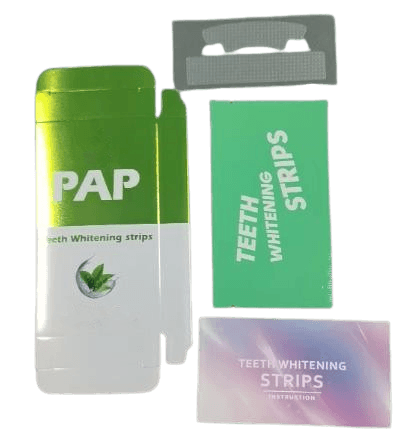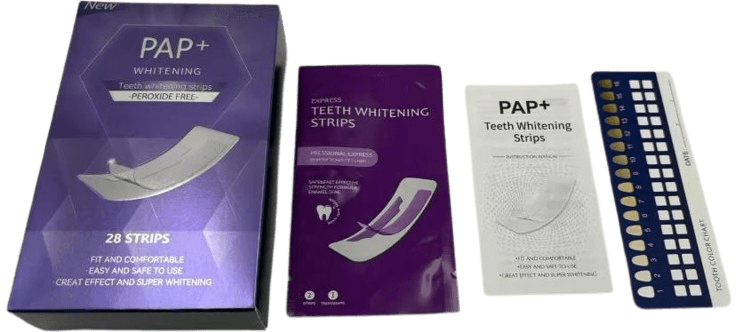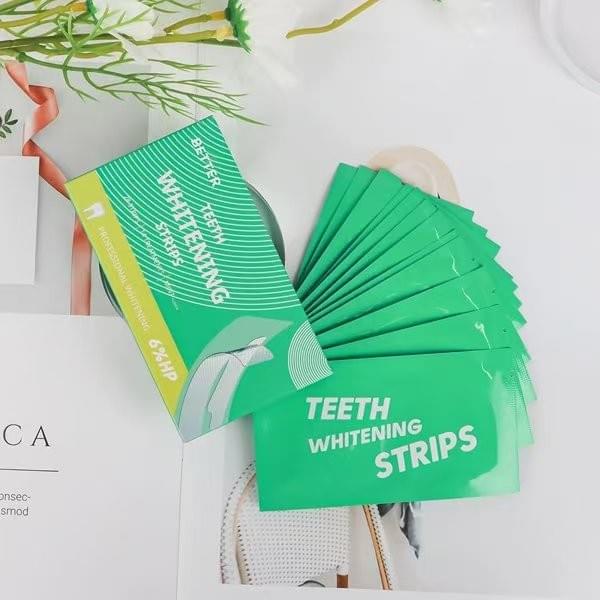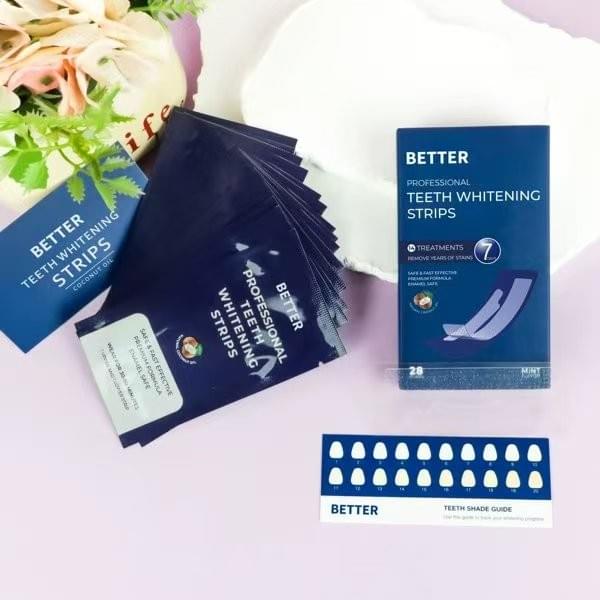Emily Carter (written by huamn not by AI)
Hi, I’m Emily, and I’m passionate about all things oral health. Honestly, I never get tired of learning and talking about it. I’ve been a dental care consultant and writer for more than five years, and I absolutely love sharing insights from the oral care industry. Yes, I’m that committed. I hope my article brings you both value and a smile. After all, your smile is your best introduction! 😁
Do you sometimes stumble across an old pack of whitening strips in your bathroom drawer and think, “Hmm, are these still safe to use?” Teeth whitening has become one of the most popular at-home beauty routines, but the question of shelf life often leaves people scratching their heads.
In this post, we’ll dive into what happens when whitening strips expire, whether they’re still effective, and the potential risks of using them past their best-by date. So if you’ve got a half-forgotten box sitting around, let’s finally settle the question: Can expired whitening strips really do the job?
What exactly are whitening strips & how do they work?
Whitening strips are thin, flexible pieces of plastic coated with a bleaching gel that contains active ingredients—usually hydrogen peroxide or carbamide peroxide. These chemicals penetrate the tooth surface and break apart stains, giving teeth a brighter appearance.
Hydrogen peroxide works quickly by releasing oxygen molecules that lift discoloration, while carbamide peroxide breaks down more gradually, making it a common choice for longer treatments. Both ultimately serve the same purpose: removing stains and restoring a whiter smile.
So, what changes after they expire?
Like most cosmetic products, whitening strips come with an expiration date for a reason. Over time, the active bleaching agents lose their strength, meaning the strips may not whiten as effectively as when they were fresh.
In some cases, expired strips may also become less stable—leading to side effects like tooth sensitivity or gum irritation. The gel can dry out, making it harder to apply evenly, and the altered formula might feel harsher on enamel. In short, expired strips are unlikely to give you the results you want—and they might cause discomfort along the way.

Can you use expired whitening strips?
It might be tempting to use expired whitening strips to save a little money or avoid a trip to the store, but it’s generally not recommended. Over time, the active ingredients lose their potency, which means expired strips are often less effective. Even worse, they can sometimes cause tooth sensitivity, gum irritation, or other unwanted side effects.
That said, if expired strips are your only option, check them carefully before use. Look at the texture, smell, and packaging—if anything seems off compared to when they were new, it’s best to avoid them altogether.
Always be aware of the potential risks. If you experience discomfort or irritation after using expired whitening strips, stop using them immediately and consult a dental professional.

How to Properly Store Whitening Strips
To keep whitening strips effective for as long as possible, proper storage is essential. Always store them in a cool, dry place away from direct sunlight. It’s best to leave them in their original packaging, as this helps prevent moisture from getting in and breaking down the active ingredients.
If you have multiple boxes, consider placing them in an airtight plastic container to stay organized and further protect them from humidity. And don’t forget—always check the expiration date before use to make sure the strips are still effective.
Alternatives to Whitening Strips
If your whitening strips have already expired or you’re looking for different options, there are a few alternatives worth considering:
- Professional whitening at the dentist’s office – While more expensive, it can deliver faster and more noticeable results.
- At-home whitening kits – Options such as LED light kits or activated charcoal powder don’t typically expire in the same way as whitening strips and can offer longer-lasting results.
These alternatives may require a higher upfront investment, but they can be a safer and more effective solution compared to expired whitening strips.

Conclusion
In short, using expired whitening strips is not recommended. Over time, their effectiveness decreases and the risk of tooth sensitivity or gum irritation increases. To get the best results, always store strips properly—cool, dry, and away from sunlight—and check the expiration date before use.
Remember, whitening strips can only remove surface stains; they cannot permanently change the natural shade of your teeth. For more dramatic results, professional options such as veneers or crowns may be necessary.
Most importantly, always consult your dentist before starting any whitening routine. They can guide you toward safe and effective options that fit your needs.
Bottom line: expired whitening strips may seem like a quick fix, but the risks outweigh the benefits. With proper storage, timely use, and professional advice, you can achieve a brighter, healthier smile safely.


